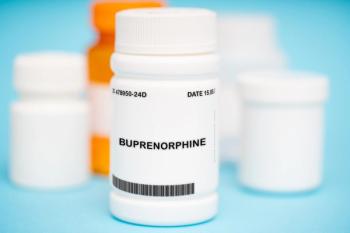
California Governor Signs Bill to Allow State-Led Generic Drug Development
Bill SB 852 would address the affordability and accessibility of generic drugs, including insulin and epinephrine, in California.
California Governor Gavin Newsom recently signed legislation that would leverage the state’s purchasing power to increase generic drug manufacturing as a potential solution to high prescription drug costs.1
The bill, SB 852, brings California a step closer to establishing its own generic prescription drug label.
Now, Governor Newsom has signed SB 852 into law, bringing “that proposal 1 step closer to reality,” according to a news release from the governor’s office.1
Ken Thai, PharmD, president of CPhA, told Drug Topics® that CPhA “fully support[s] the investigation that SB 852 really initiates, and that is the development of potentially cheaper generic drugs.”
“Then, hopefully, we’ll be able to look at other cost factors as well to do whatever we can to provide access. I think that’s really ultimately key,” Thai added.
According to Newsom, the bill aims to create and sustain manufacturing partnerships in order produce or distribute generic prescription drugs, effectively increasing the affordability and accessibility of essential medications, such as insulin and epinephrine.2,3 Insulin has nearly doubled in price in the last 4 years, and the generic version of epinephrine has skyrocketed to more than $275 per vial.1-3
In addition to drug price regulation, the bill would also tackle the issue of medication supply and shortages. Although the coronavirus disease 2019 (COVID-19) pandemic has exposed critical pitfalls in regard to medication supply across the US, many shortages of essential generic medications existed prior to the pandemic.3 Under the legislation, the California Health and Human Services Agency would foster partnerships in order to make increased access to medications a reality.1
Although SB 852 is an important first step, Thai told Drug Topics® that the issue of generic drugs is 1 drop in a very large bucket.
“Overall health care costs are rising from all over the place. I do feel that to pinpoint it and try to find out what is the true cost is obviously complex,” Thai said. “Drug costs, medication costs specifically, are definitely a part of that. But I think there are definitely other areas that need to be looked at, whether it's from the standpoint of pharmacy benefit managers (PBMs), corporate pressures, manufacturing processes, supply chains—I mean, there's just so many different things. I think there’s a lot of work that needs to be done in terms of navigating this whole process to see if this kind of theory is true, or valid.”
SB 852 would place California in direct competition with many well-established generic and brand-name drug developers, and, given the state’s huge population and purchasing power, may decrease drug prices, according to the Los Angeles Times.2 The governor’s news release similarly explained that the legislation “would also inject much needed competition into markets that have driven up prices for consumers and help address critical drug shortages.”1
The Association of Accessible Medicines (AAM) has encouraged the potential competition, according to an NPR report.3 Brett Michelin, lead lobbyist for AAM, told the Los Angeles Times that “generic manufacturers are more than open to doing this kind of partnership. I think having a fair and open process to sell drugs and compete for customers is what the generic industry is very used to and comfortable with.”2
In the press release, Senator Richard Pan (D-Sacramento) said that the bill has the capacity to “assure Californians will be able to have access to a reliable supply of affordable generic medications. With the signing of SB 852, California leads the country again in pursuing innovative ideas to increase health care access and affordability, this time for prescription drugs.”1 The state has already begun to identify potential target medications and develop a strategic plan, according to the release.1 However, the legislation will likely take at least a few years to put into place a complete plan and execution of drug manufacturing and distribution in California.
“I do applaud the governor for at least taking a stab at trying to find solutions. I think that this is one of a larger picture of costs, and I would really like to see that they also delve into some of the other cost factors out there that merit a deeper look,” Thai said. “We have so many other issues, and I think it’s important to chip away at it and continue to look at those difficult factors.”
References:
- Governor Newsom Signs Legislation Advancing California’s Fight to Lower Prescription Drug Prices. News Release. Office of the Governor Gavin Newsom; September 28, 2020. Accessed October 6, 2020. https://www.gov.ca.gov/2020/09/28/governor-newsom-signs-legislation-advancing-californias-fight-to-lower-prescription-drug-prices/.
- Hart A, Young S. California may be the first state to develop its own generic drugs. Los Angeles Times. September 1, 2020. Accessed October 6, 2020. https://www.latimes.com/california/story/2020-09-01/california-may-dive-into-generic-drug-market.
- Shapiro, A. California Governor Signs A Bill To Allow State To Develop Generic Drugs. NPR. September 29, 2020. Accessed October 6, 2020. https://www.npr.org/2020/09/29/918317455/california-governor-signs-a-bill-to-allow-state-to-develop-generic-drugs.
Newsletter
Pharmacy practice is always changing. Stay ahead of the curve with the Drug Topics newsletter and get the latest drug information, industry trends, and patient care tips.























